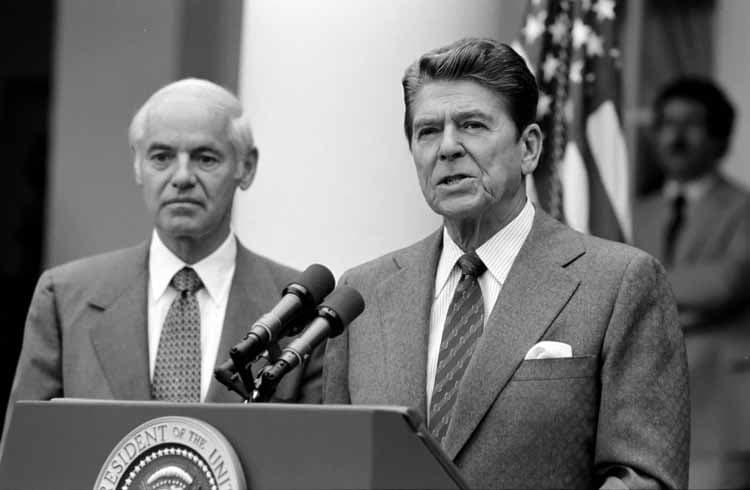Now President Trump’s a Scab, Eh?
The United Auto Workers vows to press federal labor charges against the Republican candidate for something he said about a hypothetical company in his conversation with Elon Musk.

The vow by the United Auto Workers that they’re going to press federal labor charges against President Trump and Elon Musk certainly puts the hay down where us mules can get to it. The union is upset that Trump and Mr. Musk seemed, in their remarks on X.com on Monday evening, to favor firing striking workers at a hypothetical company. “When we say Donald Trump is a scab, this is what we mean,” says the UAW’s president, Shawn Fein.
Hmmmm. The UAW avers that it is illegal to fire striking workers or to threaten to do so. Yet that is not always true, and the devil is in the details. One “cannot be fired for participating in a protected strike or picketing,” the National Labor Relations Board says on its website, but the NLRB itself adds an important caveat — “depending on the purposes and means of the strike action.” One “can be lawfully fired,” it says, “in an unprotected strike.”
In the context of national politics, one of the most famous strikes in history was that by the air traffic controllers in 1981. President Reagan had been sympathetic to the hard-working controllers during the course of the 1980 election. When most of 13,000 air traffic controllers went out, though, Reagan wheeled on them for violating their contractual undertakings and gave them 48 hours to return to work. The vast majority refused. Reagan fired them.
It was a breathtaking showdown that will never be forgotten by those who covered it. One history of the event, by Andrew Busch, reckons that it “set the tone for Reagan’s two terms in the White House,” as his publisher, the University of Kansas, puts it on its website. It notes that the decision was contested “within the administration and in the public sphere, though it ultimately proved popular.”
Reagan’s action, it says, “demonstrated his commitment to upholding federal labor law, limiting federal spending, and cutting inflation.” It showed Reagan’s ability to delegate to subordinates and enter a fray at the decisive moment. “More broadly, this decision had long-term significance that far exceeded its immediate importance.” It “formed a pattern for future decisions and made a strong impression on foreign adversaries,” as the publisher puts it.
The history is worth revisiting at a time when the Democratic Party is demagoguing a Republican candidate who, in President Trump, is making an outreach to organized labor, as the GOP did in bringing in the head of the Teamsters to address its convention. Also when governments and labor unions and corporations are pushing to curb free speech during elections through the use of the kind of lawfare the UAW is threatening with the complaint it is pressing with the NLRB.
It turns out, history suggests, that one hypothetical comment doesn’t make one a scab. Nor does firing 11,000 air traffic controllers. It seems that standing up to an illegal strike, as the Air Traffic Controllers mounted, was a popular move, as was the decision by Governor Calvin Coolidge to face down the Boston police strike. It lifted him to national office. And gave Reagan one of the greatest landslides in history. Is Vice President Harris watching?

